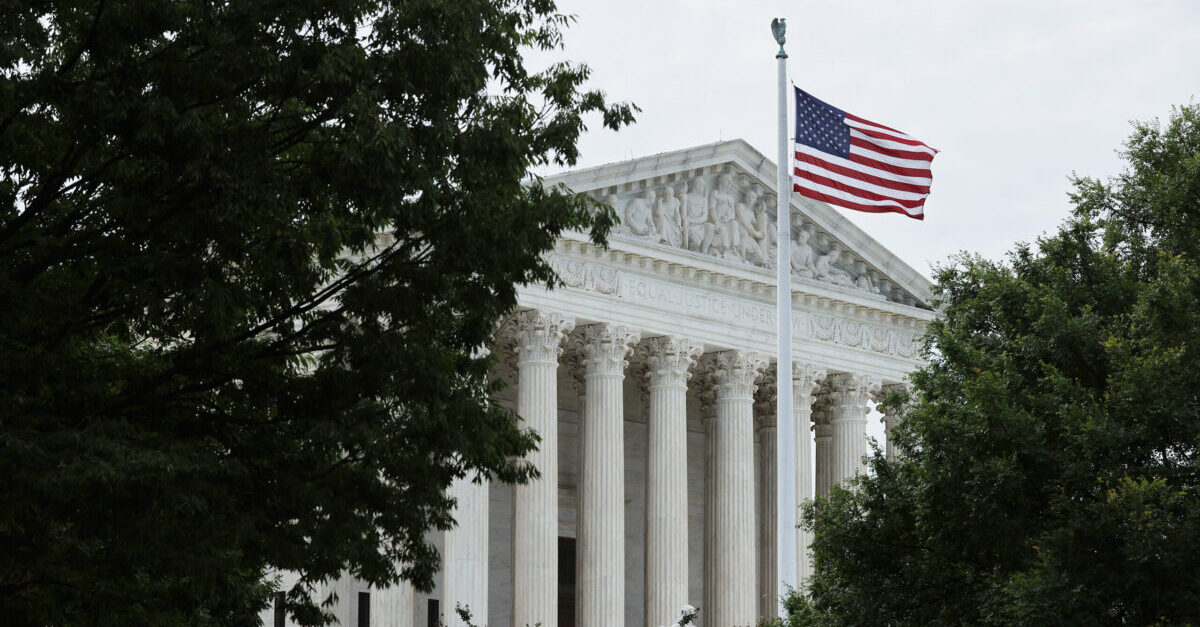
The Republican National Committee (RNC) filed a last-minute request for a stay of an injunction on Monday in an effort to make it more difficult for voters to cast mail-in ballots this November.
The RNC’s target is a late July consent decree entered into between Rhode Island authorities and a voting rights coalition led by the American Civil Liberties Union (ACLU) which includes several additional organizations as well as three individual voters who claim they would be at risk for contracting the novel Coronavirus (COVID-19) if they are forced to vote in person.
Per the terms of that decree, the Ocean State would no longer enforce witness and notary requirements through the 2020 election for voters who cast their ballot by mail. Rhode Island Secretary of State Nellie Gorbea and the state’s Board of Elections did not take issue with the ACLU’s lawsuit and a judge approved the temporary waiver of the two-person witness requirement on July 28.
The GOP repeatedly attempted to intervene and have the consent decree’s injunction of the witness requirement stayed. The district court denied the intervention request immediately. The U.S. Court of Appeals for the First Circuit allowed the GOP to make their case but declined to issue the requested stay—meaning the agreement to ditch the witness requirement is still in effect.
In a 37-page filing submitted to liberal Justice Stephen Breyer, the GOP reiterated their request to have the witness requirement reinstated.
“Last month, this Court stayed an injunction against Alabama’s witness requirement—a law requiring absentee ballots to be verified by two witnesses or one notary,” the plea begins. “Rhode Island has the same law. Yet, with full knowledge of this Court’s decision in [that previous case] and with voting set to begin in two weeks, the district court enjoined Rhode Island’s witness requirement. Late Friday night, the First Circuit denied a stay.”
The GOP takes direct issue with the appeals court’s reasoning in light of that decision in Merrill v. People First of Alabama:
The First Circuit’s two points of distinction—that no state party objects to the injunction, and that Rhode Island’s governor suspended the witness requirement once before—are untenable. This Court’s rule against injunctions on the eve of elections mainly protects “voter[s],” not state election officials. And while the witness requirement was suspended for the primary in June, the governor and the legislature decided not to suspend it again for the elections in September and November. Because the First Circuit’s distinctions fail, this Court’s stay in [the previous case] compels a stay here.
In that previous case, a 5-4 majority of conservative justices granted an emergency stay that made it harder for voters to cast absentee ballots for Alabama’s primary elections which were held in mid-July. A district court and an appeals court enjoined those efforts to bar access to the franchise but the nation’s high court performed an eleventh hour intervention and put those restrictions back in place.
“Rhode Island’s witness requirement mirrors Alabama’s,” the filing asserts.
The GOP wants the Rhode Island restriction put back in place while their full case is pending before the appeals court and while they petition the full Supreme Court to take up their objection.
To be sure, the John Roberts-led Supreme Court has been particularly amenable to last-ditch efforts by conservative applicants seeking to exact wins through the court’s so-called “shadow docket.” Whether the Trump administration’s own requests for stays of lower court injunctions or other conservative interest groups, the rate of such stays given to conservatives has prompted several denunciations by liberal Justice Sonia Sotomayor.
Election law expert and University of California, Irvine School of Law in Irvine Law Professor Rick Hasen doesn’t think the Republican Party’s effort is likely to gain much traction here.
“This one is a bit different because it is coming off a consent decree and it is very close to the deadline,” he told Law&Crime. “Less likely that Supreme Court will act even though it has as to other voting cases.”
Rhode Island’s primary election is September 8.
In a statement, some members of the voting rights coalition behind the consent decree criticized the GOP’s ongoing efforts to make it harder for people to vote.
“Rhode Island elections officials are unanimous in their view that the only safe way to conduct upcoming elections in our state is by eliminating the two-witness requirement for mail ballots, a requirement that only one other state in the country has,” ACLU of Rhode Island executive director Steven Brown said. “The unceasing attempt by the Republican Party to put the health and life of Rhode Islanders at risk is cruel to an extreme and demonstrates that their campaign of voter suppression apparently has no limits.”
[image via Chip Somodevilla/Getty Images]